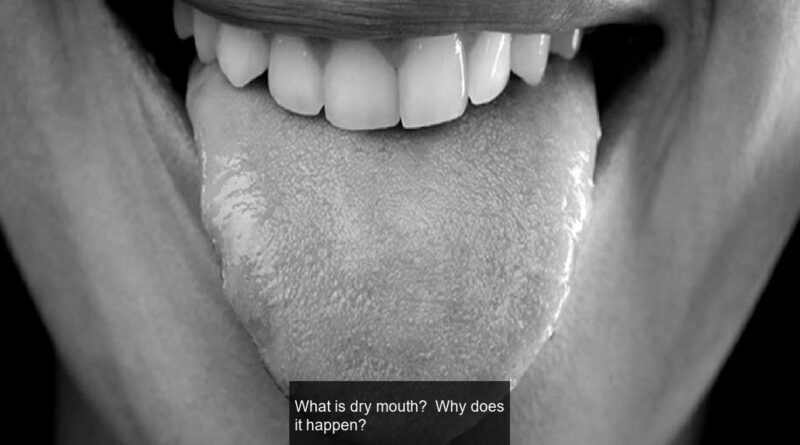What is dry mouth? Why does it happen?
Dry mouth, which occurs with the decrease of saliva in the mouth, can develop due to many reasons. Dry mouth, also known as xerostomia, can cause dental caries and intraoral infections. In order to get rid of dry mouth, which can also be a symptom of some important diseases, the underlying cause must be determined.

Dry mouth occurs if saliva is not produced
Dry mouth refers to a condition in which the salivary glands cannot produce enough saliva to keep the mouth moist. By neutralizing the acids produced by bacteria, saliva stops bacterial growth and helps prevent tooth decay. Saliva also improves the ability to taste and facilitates chewing and swallowing. In addition, enzymes in saliva aid digestion. Decreased saliva and the resulting dry mouth will have a major impact on tooth and gum health, appetite and enjoyment of food. Dry mouth is usually the side effect of drugs, aging-related problems or as a result of cancer treatments.

Watch out for these symptoms
Insufficient saliva production in the mouth can cause the following symptoms:
– Dry or sticky feeling in the mouth.
– Frequent thirst.
– A tingling sensation in the tongue.
– Enlargement of salivary glands.
– Saliva that looks thick and fibrous.
– Bad breath.
– Difficulty chewing, speaking and swallowing.
– Sore throat and hoarseness.
– Dry or corrugated tongue.
– An altered sense of taste.
– Prosthetic fitting problems.

Dry mouth can be caused by these issues
Medicines:Some drugs used in the treatment of depression, high blood pressure and anxiety, as well as antihistamines, decongestants, muscle relaxants and pain relievers can cause dry mouth.
Aging: Many people experience dry mouth as they age. Among the contributing factors are necessarily medication use, changes in the body’s ability to process medications, malnutrition, and long-term health issues.
Cancer treatment: Chemotherapy drugs can change the structure of saliva and the amount produced. Radiation or radiation treatments to the head and neck can obviously damage the salivary glands, resulting in a reduction in saliva production.
Nerve damage:An injury or surgery that causes border damage in the head and neck region can cause dry mouth.
Other health conditions: Diabetes-diabetes, paralysis, fungal infection in the mouth (thrush) or autoimmune diseases such as Alzheimer’s disease, Sjögren’s syndrome or HIV/AIDS can cause dry mouth. Diseases such as kidney failure, thyroid diseases, anemia, and tuberculosis are also causes of dry mouth.
Nasal congestion:Mouth breathing, snoring, and dry room air can also contribute to dry mouth.
Tobacco and alcohol use:Drinking alcohol, smoking or chewing tobacco can increase dry mouth complaints.
Drug use: Methamphetamine use causes severe dry mouth and a tooth-damaging condition known as “meth mouth”. Marijuana can also cause dry mouth.

Valuable suggestions for dry mouth
Determination of treatment should be based on the cause of dry mouth. The specialist doctor or dentist can:
– Drugs that cause dry mouth can be changed. If this is not possible, the estimated dose size can be reduced.
– Works that will moisten the mouth can be used (mouthwashes, artificial saliva or moisturizers can be). Mouthwashes designed for dry mouth, especially containing xylitol, also provide protection against tooth decay.
– Drugs that stimulate saliva can be used.
– Protecting teeth is valuable. Fluoride medications or weekly chlorhexidine can be used to prevent cavities.

